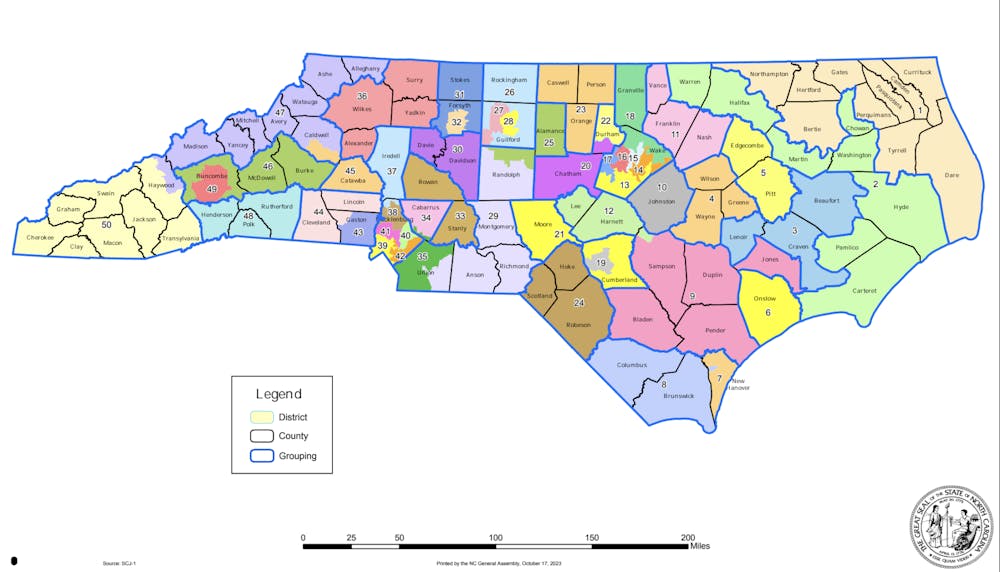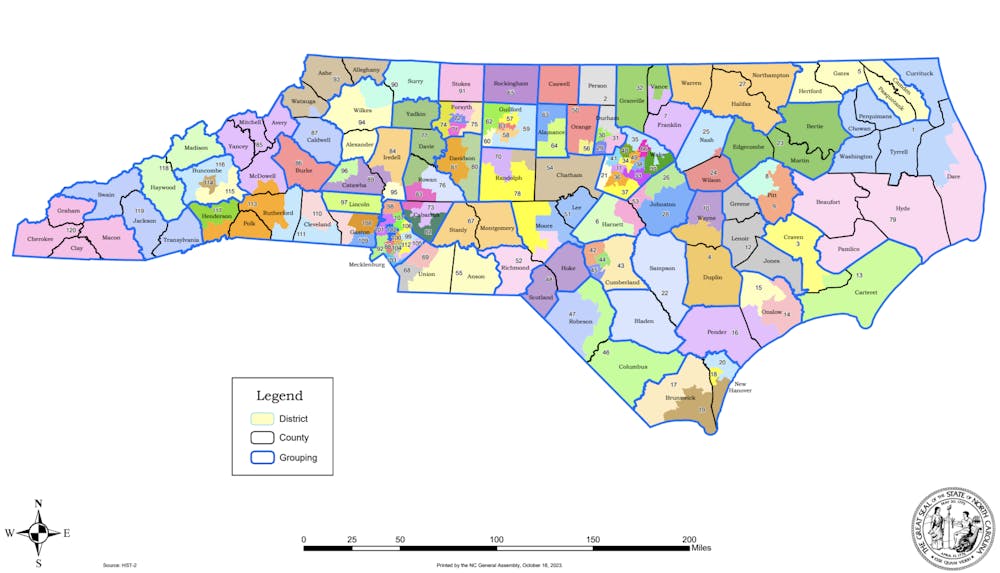New maps released by the N.C. General Assembly today would likely give Republicans an advantage in 10 or 11 of the state's 14 congressional seats up for grabs in 2024. The state's current congressional delegation is made up of seven Democrats and seven Republicans after court-imposed maps were used for the 2022 elections.
The new maps also give Republicans an advantage in 32 seats in the N.C. Senate and 71 in the N.C. House — which would not be enough for a supermajority in the N.C. General Assembly.

The map proposed in Senate Bill 757 would likely give Republicans a 10-4 or 11-3 advantage in the state's congressional delegation.
The new maps released today come under loosened redistricting rules after the 5-2 Republican majority on the N.C. Supreme Court said in April that North Carolina state courts can have no oversight over issues of political gerrymandering. Federal courts had already passed the issue of partisan gerrymandering to state courts.
The new maps released today include two options for the congressional districts — with one giving a solid 11-3 advantage to Republicans and the other giving a 10-4 or 11-3 advantage. The map with a possibility of 10-4 proposes one closely contested district in the northeast part of the state in incumbent Democrat Rep. Don Davis' (D-N.C. 1st) district.
Dave's Redistricting, a site that allows users to analyze district data, gave each congressional map option the lowest possible score for proportionality.

Several Democrat incumbents are expected to be drawn out of their seats, including Rep. Jeff Jackson (D-N.C. 14th), who has been mulling a run for attorney general.
Rep. Valerie Foushee (D-N.C. 4th) will also potentially be drawn out of a seat if the General Assembly chooses to enact the S.B. 756 map. Foushee currently represents Chapel Hill and Carrboro in the U.S. House and was elected to her first term in Congress in November 2022.





